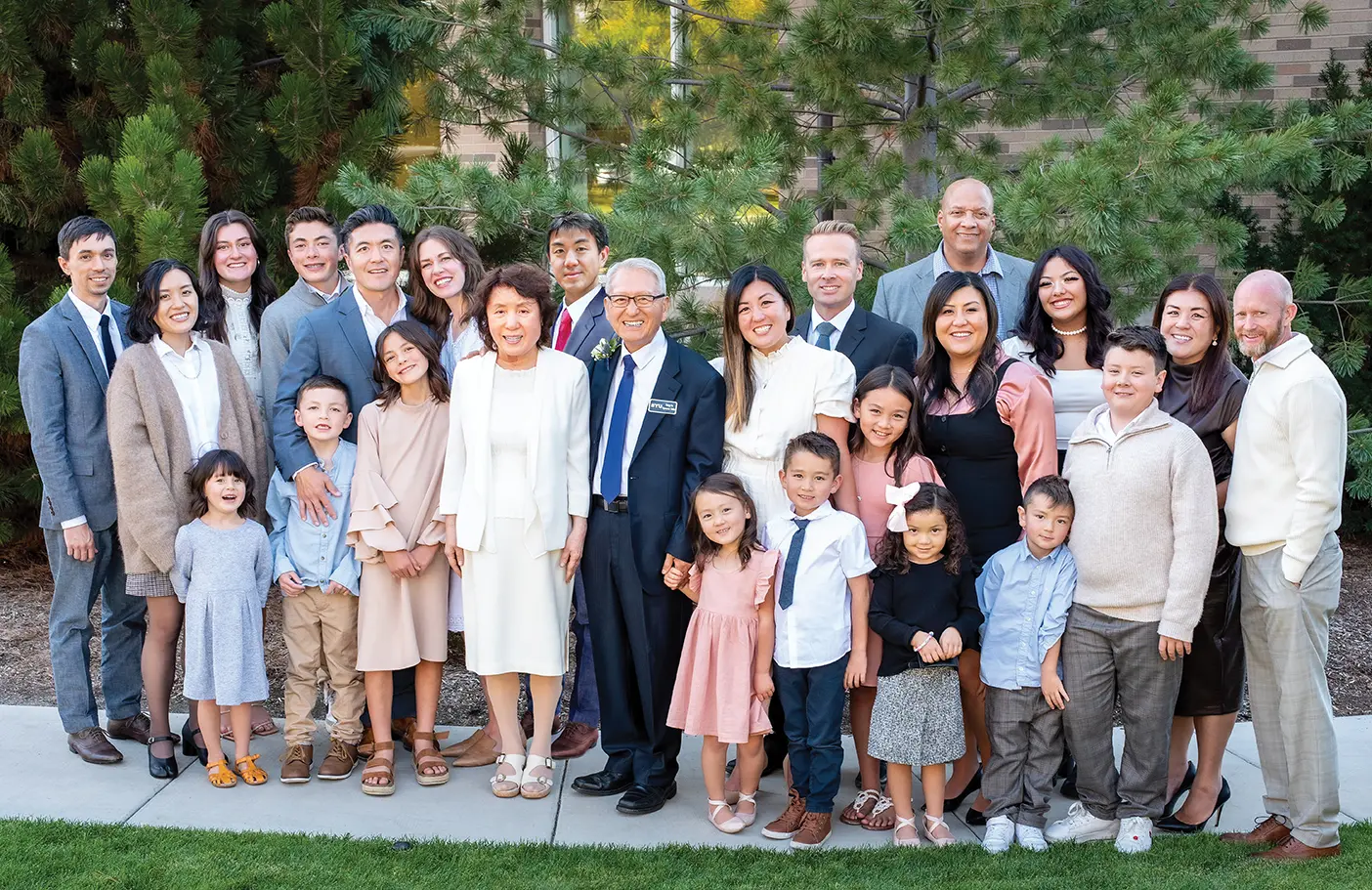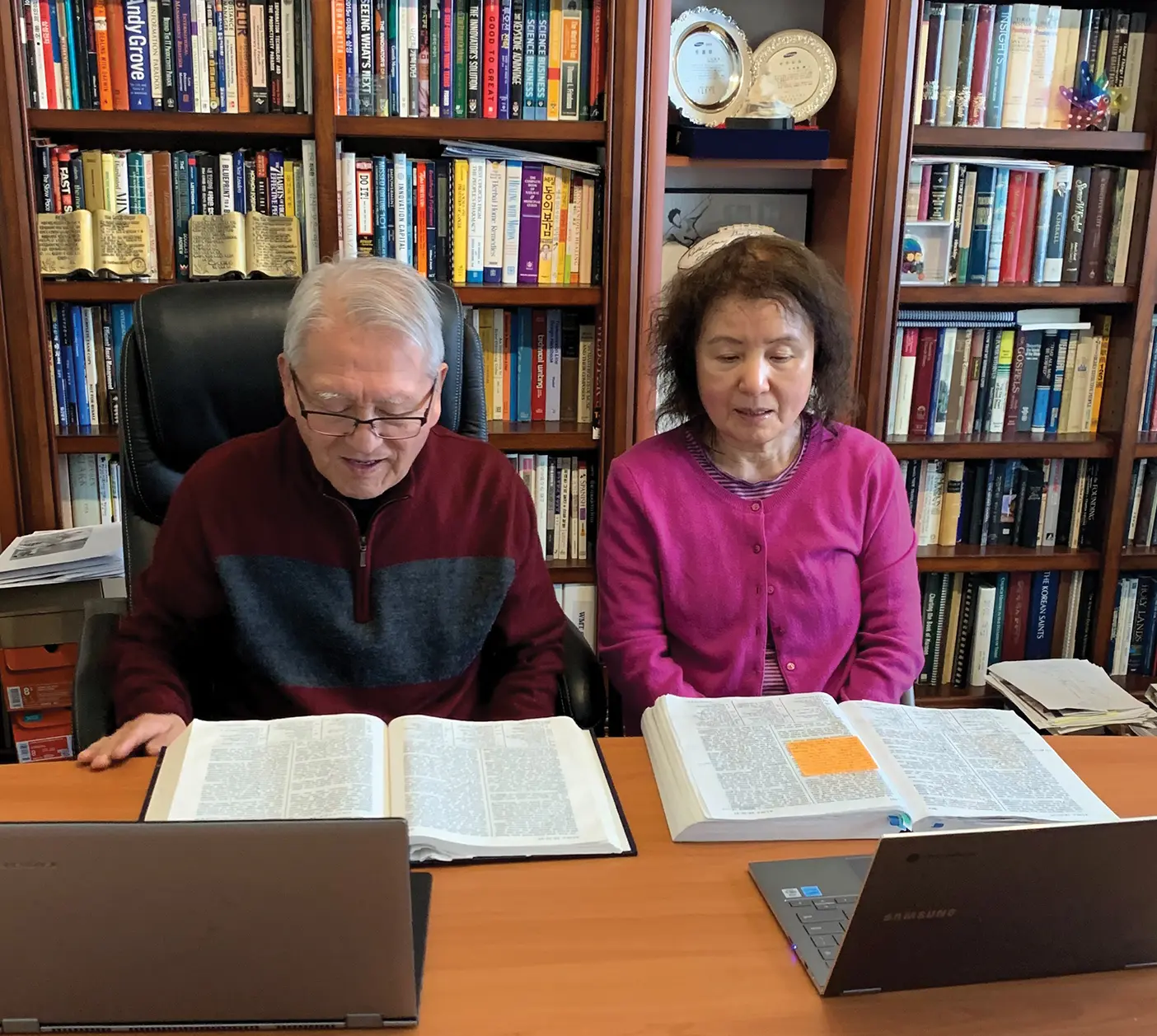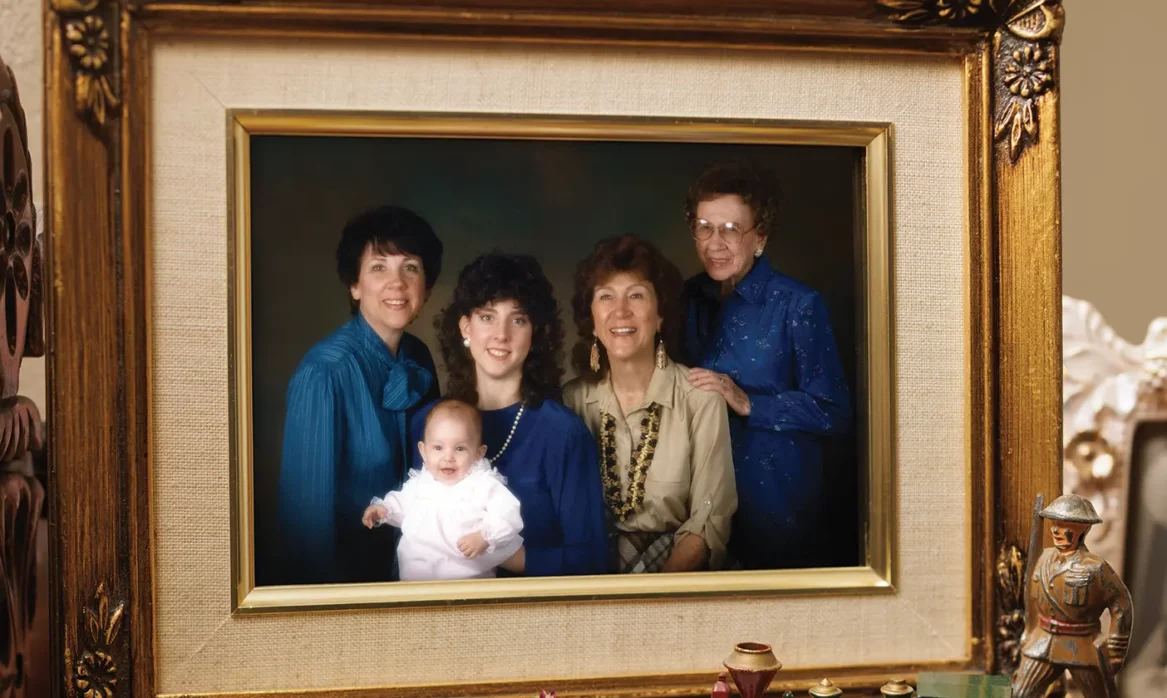Yong-In Spencer Shin, a BYU Distinguished Alumni Award winner, has built a legacy of faith and family.

Born to poor farmers in a rural Korean village, Yong-In Spencer Shin (BS ’78, MEng’80) experienced poverty, ambition, betrayal, redemption, loss, and renewal on his journey to leadership in business and service in The Church of Jesus Christ of Latter-day Saints. But for Shin, his story is ultimately one of hard work, faith, and reliance on God.
Shin was born in 1948, just as Korea was gasping for breath between the end of Japan’s brutal occupation during World War II and the onset of the Korean War. Though he cherishes the memories from his childhood with his parents and grandparents, Shin was acutely aware of the challenges and sacrifices his parents faced to support their four children. He recalls his mother and grandmother waking at 4 a.m. during his junior-high years to prepare breakfast and get him ready for his walk to school, an hour and a half away. “My parents worked very hard without proper compensation for their hard labor,” Shin recalls. He and his parents wanted more for his life.
Knowing education was the only way out of his farming community, Shin aspired to attend a prestigious high school when he was 14. With only 40 available slots for 240 applicants to the school’s electrical-engineering program, Shin prepared diligently for the entrance exam and scored in the top 10 percent. Despite the high cost to the family, Shin’s parents sacrificed for him to attend.
While in school Shin met several American GIs who were members of The Church of Jesus Christ of Latter-day Saints. Raised atheist, Shin wasn’t initially interested in Christianity. However, those initial contacts planted a seed that sprouted a few years later, when he met missionaries in Seoul. Learning the gospel and receiving baptism were transformative for Shin. “This conversion changed me in every aspect of my life,” says Shin, who later took on the name Spencer in honor of President Spencer W. Kimball. To the hard work, patience, and persistence he’d learned from his parents, Shin now added trust in the Lord instead of only in himself.
After finishing high school and completing two years of college with high honors, Shin set his sights on attending an American university. That dream was deferred for five years as he served in the Korean military and worked to save money while preparing for a test to qualify for study abroad. He passed the exam and was accepted to MIT and BYU. Realizing that MIT was out of reach financially, he ultimately chose BYU and headed to Provo at age 26.
Before starting school Shin met with one of the soldiers who had helped convert him to the gospel. Tragically, this friend embezzled almost all the money Shin had saved for school, leaving him blindsided and betrayed.
Filled with anxiety, Shin turned to the Lord in fasting and prayer and was led to the Trotters, a local family who offered him free room and board for his first two years at BYU. He taught Taekwondo classes to support himself as he earned BS and MS degrees in electrical and computer engineering. “I could not have achieved these academic degrees without the Lord’s blessings,” Shin says.
While still at BYU, Shin received a blessing from his branch president that inspired him to return to Korea for summer vacation. While there, he ran into Chi Hyo-Sun by chance at a stake center. Inspired by her faithfulness and beauty, Shin immediately asked her to dinner. In a brief courtship that included fervent prayer and spiritual experiences, they knew they were meant to marry. “I could not stand not seeing her, even for a day,” Shin recalls. The couple married just three weeks later. Today they have 6 children (all BYU grads) and 12 grandchildren.

As his family grew and he accepted busy church callings, Shin took a technical marketing job in the Netherlands, where he completed a doctoral degree in economics and business management while working full-time. The degree served him well later in business, as a university professor, and as the CEO of his own consulting company.
Shin returned to Korea as an executive vice president of Samsung Electronics. He and his wife were later called to preside over the Korea Daejeon Mission. “It was a miraculous opportunity for us to serve the Lord among the Korean people!” says Shin.
Six weeks after Shin and his wife returned from their mission, they received devastating news: their fifth child, Samuel Injae Shin (BS ’12, MS ’14), had passed away in a rock-climbing accident. “A Korean proverb says that we bury parents under the ground, but we bury a child in the heart,” Shin says. Even so, he adds, “my family experienced many tender mercies during our agony,” hearing voices from heaven and receiving divine dreams that fulfilled priesthood blessings and brought comfort and peace.
To honor their son the family set up the Samuel Injae Shin Scholarship for the BYU Neuroscience Center (where Samuel received his BS and MS degrees). Shin then took three years to research and write a book that he dedicated to Samuel. Plain and Precious: Finding the Fulness of the Gospel Through the Bible–Book of Mormon Connection was published in English and Korean.
“Church, jobs, and family: these are all work. But at the end, what you have left is your family.”
—Yong-In Spencer Shin
The Korean publication corresponded with Shin’s 50th anniversary of joining the Church. “It was a significant milestone to share my testimony of Jesus Christ through these books after practicing my Christian faith for half a century,” Shin says. “Even if my Samuel’s passing has been the most difficult experience for me and my family, I gained a stronger testimony of the divinity of Jesus Christ and
His Atoning plan for eternal progression. I am looking forward to the day I will report to the Lord after this earthly life and meet my Samuel joyfully again!”
Shin’s legacy of faith and diligence continues. Forty-five years after the American GI embezzled his college funds, the man came to Shin to ask for forgiveness, which Shin immediately granted. “The Lord blessed me much more than the loss he had caused!” Shin says. The most important blessings Shin claims are his family, faith, and career. “Church, jobs, and family: these are all work,” says Shin. “But at the end, what you have left is your family.”












